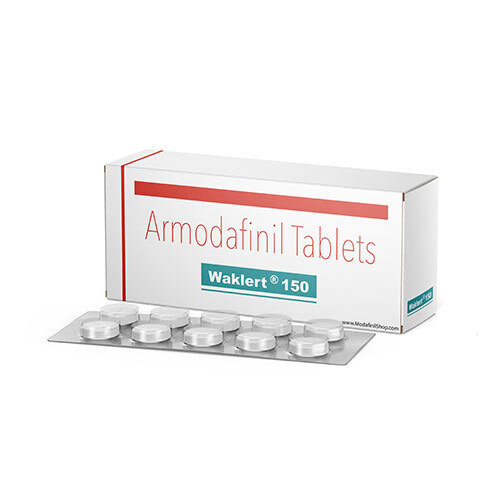Modafinil Interactions: How It Affects Other Medications, Foods, and Supplements
Modafinil is a wakefulness medicine used for narcolepsy, obstructive sleep apnea (OSA), and shift work disorder. Doctors also use it off label for fatigue and attention problems. It can change how other drugs work because it affects liver enzymes that break down medicines. Knowing the common interactions helps you use modafinil safely (U.S. Food and Drug Administration, 2015; Greenblatt & Adams, 2023).
What modafinil is approved to treat
- Narcolepsy, to improve daytime wakefulness
- Obstructive sleep apnea, as an add-on to continuous positive airway pressure (CPAP), not a treatment for the airway problem itself
- Shift work disorder, taken about one hour before the shift
These uses and dosing come from the official label. The usual dose is 200 mg once daily. People with severe liver disease should use half the usual dose. Older adults may need lower doses and closer monitoring (U.S. Food and Drug Administration, 2015).
How modafinil works in the body
The exact mechanism is not fully known. Modafinil blocks the dopamine transporter, which raises dopamine levels, and other brain systems like orexin and histamine may also play a role. Its peak blood level occurs about 2 to 4 hours after a dose, and its half-life is about 12 to 15 hours. Food can delay the peak by about one hour but does not change overall exposure (Robertson & Hellriegel, 2003; Greenblatt & Adams, 2023).
Why interactions happen
Modafinil changes liver enzymes that process medicines:
- CYP3A: weak induction. This can lower levels of CYP3A substrates at steady state. In a clinical study, steady modafinil reduced midazolam exposure to about two-thirds of normal, showing a meaningful CYP3A effect (Rowland et al., 2018).
- CYP2C19: inhibition. This can raise levels of CYP2C19 substrates. The same study showed about a 90 percent rise in omeprazole exposure (Rowland et al., 2018).
- Other enzymes: small induction of CYP1A2 and CYP2B6 and suppression of CYP2C9 have been seen in laboratory and clinical work (Robertson & Hellriegel, 2003).
Drug interactions to know about
Hormonal birth control
Modafinil can make steroidal contraceptives less effective, including pills, patches, rings, implants, and some intrauterine devices. Use a reliable non-hormonal method while taking modafinil and for 1 month after stopping (U.S. Food and Drug Administration, 2015).
Benzodiazepines and sleep medicines
- Diazepam levels may increase because it uses CYP2C19. Watch for extra sedation and adjust if needed (U.S. Food and Drug Administration, 2015).
- Triazolam and midazolam levels may decrease because of CYP3A induction. They may not work as well. Dose changes or alternatives may be needed (U.S. Food and Drug Administration, 2015; Robertson & Hellriegel, 2003).
Antiepileptic medicines
- Phenytoin levels can increase. Check levels and watch for side effects such as unsteady gait or vision changes (U.S. Food and Drug Administration, 2015; Robertson & Hellriegel, 2003).
- Strong enzyme inducers like carbamazepine and phenobarbital can lower modafinil levels and its effect. You may need dose changes based on symptoms (Robertson & Hellriegel, 2003).
Antidepressants and other psychiatric medicines
- Some selective serotonin reuptake inhibitors (SSRIs) and tricyclic antidepressants (TCAs) that depend on CYP2C19 can be affected. Effects are most relevant in people who are CYP2D6 poor metabolizers, since CYP2C19 becomes more important. Monitor response and side effects (Greenblatt & Adams, 2023; Robertson & Hellriegel, 2003).
- Antipsychotics that rely on CYP3A may see lower levels. Clinical data with the related drug armodafinil show reduced exposure to some CYP3A substrates. Monitor efficacy and consider alternatives if needed (Robertson & Hellriegel, 2003).
Immunosuppressants
- Cyclosporine levels can drop. The label advises close blood level monitoring and possible dose increases to maintain the target range (U.S. Food and Drug Administration, 2015).
Acid reducers
- Omeprazole levels can rise due to CYP2C19 inhibition. In a clinical study, exposure almost doubled. Consider dose adjustments based on symptoms and indication (Rowland et al., 2018).
Anticoagulants
- Warfarin: changes are possible. Check the international normalized ratio (INR) more often when starting or stopping modafinil (Robertson & Hellriegel, 2003; U.S. Food and Drug Administration, 2015).
Stimulants
There is no strong pharmacokinetic interaction with methylphenidate or amphetamine, but taking them together can increase side effects like anxiety, insomnia, and fast heart rate. Use careful monitoring if combined (Robertson & Hellriegel, 2003; U.S. Food and Drug Administration, 2015).
Food and supplement interactions
Food
Food delays the time to peak by about one hour but does not change total exposure. You can take modafinil with or without food (Robertson & Hellriegel, 2003).
Caffeine and stimulant supplements
Caffeine, energy drinks, and stimulant “nootropics” can add to side effects such as jitteriness, anxiety, palpitations, and trouble sleeping. Limit caffeine and avoid stimulant blends unless your clinician approves them (Greenblatt & Adams, 2023).
Herbal products
Avoid strong enzyme inducers like St. John’s wort. They can lower exposure to many drugs and may reduce modafinil’s effect and further compromise hormonal birth control (Rowland et al., 2018; Robertson & Hellriegel, 2003).
Safety in special groups
- Severe hepatic impairment: use half the usual dose. Effects can be stronger and last longer (U.S. Food and Drug Administration, 2015).
- Older adults: drug clearance may be slower. Consider lower doses and close monitoring (U.S. Food and Drug Administration, 2015).
- Psychiatric history: use caution in people with psychosis, depression, or mania. Stop the drug and seek care if mood or behavior changes appear (U.S. Food and Drug Administration, 2015).
- Serious rash: rare but serious reactions like Stevens–Johnson syndrome and drug reaction with eosinophilia and systemic symptoms can occur. Stop at the first sign of rash and get urgent care (U.S. Food and Drug Administration, 2015).
- Obstructive sleep apnea: modafinil treats sleepiness only. It does not fix the airway problem. Keep using CPAP or other airway therapy (U.S. Food and Drug Administration, 2015).
Practical tips when starting modafinil
- List all medicines, contraceptives, and supplements for your clinician.
- If you use hormonal birth control, add a non-hormonal method during treatment and for 1 month after stopping.
- Limit caffeine and avoid stimulant blends until you know how you feel on modafinil.
- If you take warfarin, schedule extra INR checks when starting or stopping modafinil.
- Report rash, mood changes, severe anxiety, chest pain, or new neurologic symptoms right away (U.S. Food and Drug Administration, 2015; Greenblatt & Adams, 2023).
What the evidence says, in brief
- The FDA label is the primary source for approved uses, dosing, warnings, and several key interactions including contraceptives, cyclosporine, benzodiazepines, and warfarin (U.S. Food and Drug Administration, 2015).
- Clinical pharmacology studies show weak CYP3A induction and CYP2C19 inhibition, with real-world examples like reduced midazolam exposure and increased omeprazole exposure at steady state (Rowland et al., 2018).
- Classic pharmacokinetic reviews provide the half-life, timing to peak, enzyme effects, and interaction results with common drugs, confirming modest but important effects (Robertson & Hellriegel, 2003).
- Mechanistic work supports dopamine transporter involvement and helps explain the different side effect and abuse profiles compared with traditional stimulants (Schmitt & Reith, 2011; Salerno et al., 2019; Greenblatt & Adams, 2023).
FAQs
Can I take modafinil at night?
It is usually taken in the morning for narcolepsy or OSA, and about one hour before the shift for shift work disorder. Taking it late can cause insomnia (U.S. Food and Drug Administration, 2015).
Can I drink coffee with modafinil?
Yes, but start low. Caffeine can add to side effects like jitteriness, anxiety, and a fast heart rate. Adjust based on how you feel and your clinician’s advice (Greenblatt & Adams, 2023).
Does modafinil replace CPAP for obstructive sleep apnea?
No. Modafinil only treats sleepiness. CPAP or other airway treatments are still needed to treat the airway problem (U.S. Food and Drug Administration, 2015).
Will my birth control still work?
Modafinil can reduce the effectiveness of steroidal contraceptives during treatment and for 1 month after stopping. Use a non-hormonal backup method during this time (U.S. Food and Drug Administration, 2015).
References
- U.S. Food and Drug Administration. (2015). PROVIGIL® (modafinil) tablets, for oral use, C-IV [Prescribing information]. U.S. Department of Health and Human Services. https://www.accessdata.fda.gov/drugsatfda_docs/label/2015/020717s037s038lbl.pdf
- Greenblatt, K., & Adams, N. (2023, February 6). Modafinil. In StatPearls [Internet]. StatPearls Publishing. https://www.ncbi.nlm.nih.gov/books/NBK531476/
- Robertson, P., Jr., & Hellriegel, E. T. (2003). Clinical pharmacokinetic profile of modafinil. Clinical Pharmacokinetics, 42(2), 123–137. https://doi.org/10.2165/00003088-200342020-00002
- Salerno, M., Villano, I., Nicolosi, D., Longhitano, L., Loreto, C., Lovino, A., Sessa, F., Polito, A. N., Monda, V., Chieffi, S., Messina, A., Monda, M., Zammit, C., Tafuri, D., Messina, G., & Carotenuto, M. (2019). Modafinil and orexin system: Interactions and medico-legal considerations. Frontiers in Bioscience (Landmark Edition), 24(3), 564–575. https://doi.org/10.2741/4736
- Schmitt, K. C., & Reith, M. E. (2011). The atypical stimulant and nootropic modafinil interacts with the dopamine transporter in a different manner than classical cocaine-like inhibitors. PLoS ONE, 6(10), e25790. https://doi.org/10.1371/journal.pone.0025790
- Rowland, A., van Dyk, M., Warncken, D., Mangoni, A. A., Sorich, M. J., & Rowland, A. (2018). Evaluation of modafinil as a perpetrator of metabolic drug–drug interactions using a model informed cocktail reaction phenotyping trial protocol. British Journal of Clinical Pharmacology, 84(3), 501–509. https://doi.org/10.1111/bcp.13478








